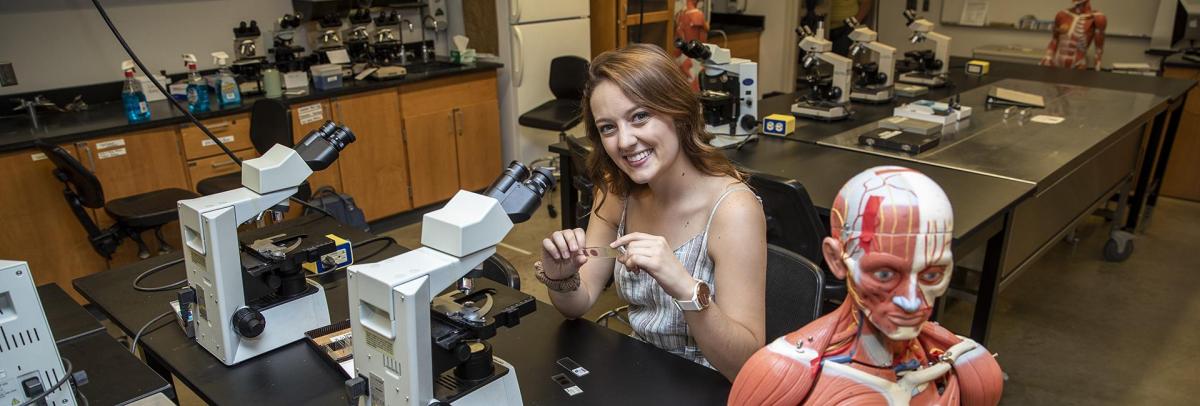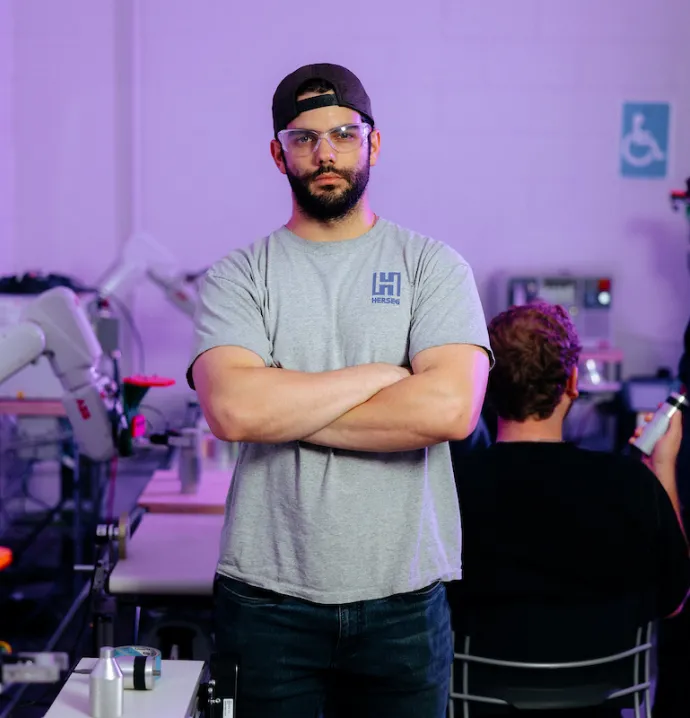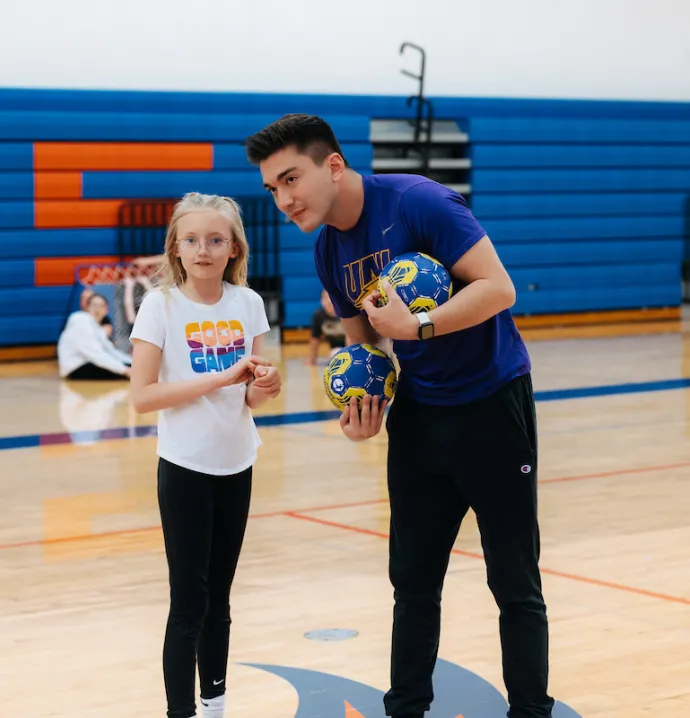UNI biology major returns from life-changing summer
UNI biology major returns from life-changing summer
An eight-week internship in neurology brought senior Mollie Sherman face to face with the rigors of the medical field, and gave her the confidence that she could fulfill a dream.
Mollie Sherman remembered the silence of the emergency operating room.
It was the type of silence created only by intense focus, of the acknowledgement that producing sound is too costly, too distracting. It was the silence of a life hanging in the balance.
The silence was pierced only by the steady beeping of the heart monitor and the quiet, brisk commands of the surgeon to his nursing team. The patient on the operating table had been rushed into the OR at the Boston Medical Center only moments before. A brain aneurysm had burst. Survival was unclear.
Sherman, who was in the midst of an internship at Boston University and shadowing the neurosurgery wing of the hospital, was there when the patient was rushed in. It had been a whir of activity, of running down stairs and gathering supplies. It seemed like a dream. Her adrenaline spiked.
Now, she was hugging the walls, in awe of the bustle of expertise unfolding before her, marveling at the precision and efficiency of the surgery team.
And, over it all, was the silence.
“You could hear a pin drop in there,” Sherman said. “I was just trying to stay out of their way. I was a fly on the wall. They were saving a life.”
That day, the surgery was a success. The patient survived. But by the end of her eight-week internship, the University of Northern Iowa senior learned that isn’t always the outcome. She saw all sides of medicine – the thrilling successes and the anguishing defeats. She saw the imperfections, the gaps in knowledge.
The whole summer was spent, day in and day out, at the hospital, getting a first-hand look inside the minds of some of the best doctors and surgeons in the nation. She witnessed their thought process, their patient interactions, their decisions making.
In the classroom and research lab, she studied the brain and human anatomy at the medical-school level. She studied monkey brains to further research into how inhibitory neurons in the areas of the brain that deal with emotion and cognition affect functioning in schizophrenic patients and people with depression and anxiety.
It was a life-changing summer, and it gave Sherman the confidence to pursue a goal she had been told she could never accomplish, the goal of becoming a doctor.
“This summer, I saw that nothing about a doctor’s job is easy or simple, but the internship instilled a sense of confidence in myself that I hadn’t had before – this feeling of, ‘Wow, I was made to do this. I can do this,’” Sherman said.
In high school, she had a passion for medicine, but a bad experience shadowing a doctor in Iowa City led to a nurse bluntly telling Sherman that she didn’t have what it takes to work in the field.
Sherman arrived at UNI as a music education major. But her first year of college didn’t sit right. She kept changing her major to find the right fit before finally deciding to pursue her passion of medicine, regardless of what anyone said.
She changed her major to psychology with an emphasis in biology and chemistry. She started researching what medical schools look for when accepting applicants and found that internships were prized. So, she started applying. She said she was shocked when she was accepted at Boston University. Hundreds applied. Only 13 were accepted.
“Before going to Boston, I had always doubted whether I had what it takes to become a doctor,” Sherman said. “But somehow, through hard work and encouragement from professors here at UNI, I made it there.”
She attributed much of that success to UNI.
“People would come up to me and say, ‘pre-med at UNI?’ But it’s actually an amazing school for it,” Sherman said. “Staying here ended up being the best decision ever. The science classes are much smaller than other universities, and they are so hands-on. You get to know the professors, and they are willing to help you with anything.”
Sherman said that many of her former professors still say hello to her and remember her name.
“That makes a big difference, having that close experience with the teacher,” Sherman said. “I never for one second felt like I was behind people at the internship who were from Norte Dame or Cornell or Penn State. A lot of that is because of the culture at UNI.”
After graduation, Sherman plans to attend medical school. And while her experience in Boston changed in perception of the medical field, it did not diminish her passion to pursue it.
“As a pre-med student, you think you’re going to save lives and change the world, and get there and it’s not all shiny and amazing. It’s terrifying, and you lose patients, and sometimes doctors don’t know how to save patients,” Sherman said. “There’s a lot of imperfections. It was amazing to see those imperfections and still walk away with a desire and love to do it anyway. I’m starting to understand that it’s not all perfect, but you make small changes, and small changes over a long time can eventually make a big difference.”





